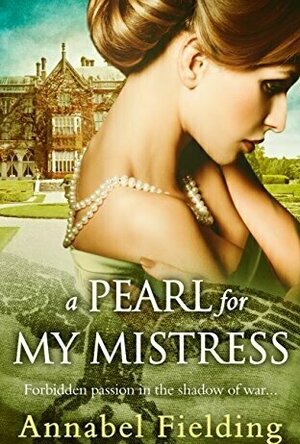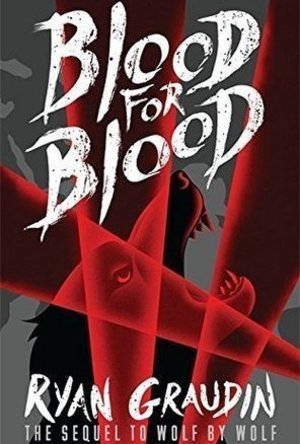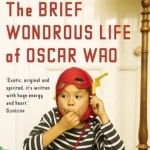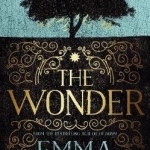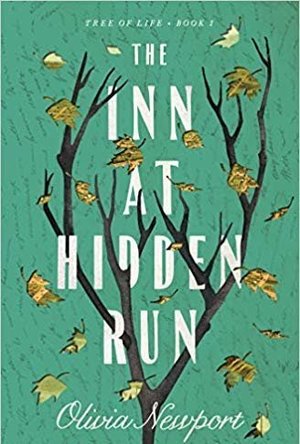Search
Search results
BookInspector (124 KP) rated A Pearl for My Mistress in Books
Sep 24, 2020
I would like to begin this review by saying that I really loved the cover of this book, it looks pleasant and very sophisticated, another thing which intrigued me, was the lesbian relationship in 1930th England.
The characters in this novel are very interesting, sophisticated and at the same time very believable and down to earth. The whole book was mainly told from Lady Lucy’s, Hester’s (the maid) and Sophie’s (Hester’s sister) perspectives. I really liked that author chose multiple perspectives, it allowed me to have a better insight into characters personalities and made the whole story more indulging. My favourite persona in this book was Hester. I liked her simplicity, pureness and adventurous heart.
The narrative of the book is filled with historical knowledge and politics. It was very clearly visible that author has a passion for history and she has done a great research for this novel. For me it wasn't a very easy read, there are a lot of things happening in this novel and a lot of politics involved, because of that I had to keep my concentration going to understand what was going on. However, I really enjoyed all the details which author shared about aristocratic life, their struggles and wish of Independence. I also loved the insight into maids world in that period, as most of the books I read was mostly set in the 19th century, and it was nice to compare how it changed during the time.
The writing style of this book is very rich and elegant, it reflected that particular era very nicely, and I felt the spirit of 1930th through the pages. The chapter length was quite long to my liking, even though it was divided into smaller parts. (Well, what can I say, I love short chapters…) The ending of the book concluded the book really nicely but still left me guessing where life will take Hester. So to conclude, it is a very interesting book about aristocrats and their lifestyle between the wars in England, filled with secrets, manipulations, and fear or support of new regiment. I would strongly recommend this book to all historical fiction readers and people who like politics. Enjoy :)
Was given this book by publisher and NetGalley for an honest review.
The characters in this novel are very interesting, sophisticated and at the same time very believable and down to earth. The whole book was mainly told from Lady Lucy’s, Hester’s (the maid) and Sophie’s (Hester’s sister) perspectives. I really liked that author chose multiple perspectives, it allowed me to have a better insight into characters personalities and made the whole story more indulging. My favourite persona in this book was Hester. I liked her simplicity, pureness and adventurous heart.
The narrative of the book is filled with historical knowledge and politics. It was very clearly visible that author has a passion for history and she has done a great research for this novel. For me it wasn't a very easy read, there are a lot of things happening in this novel and a lot of politics involved, because of that I had to keep my concentration going to understand what was going on. However, I really enjoyed all the details which author shared about aristocratic life, their struggles and wish of Independence. I also loved the insight into maids world in that period, as most of the books I read was mostly set in the 19th century, and it was nice to compare how it changed during the time.
The writing style of this book is very rich and elegant, it reflected that particular era very nicely, and I felt the spirit of 1930th through the pages. The chapter length was quite long to my liking, even though it was divided into smaller parts. (Well, what can I say, I love short chapters…) The ending of the book concluded the book really nicely but still left me guessing where life will take Hester. So to conclude, it is a very interesting book about aristocrats and their lifestyle between the wars in England, filled with secrets, manipulations, and fear or support of new regiment. I would strongly recommend this book to all historical fiction readers and people who like politics. Enjoy :)
Was given this book by publisher and NetGalley for an honest review.
Hazel (2934 KP) rated Legend (A Claire Whitcomb Western #3) in Books
Dec 29, 2020
If, like me, you tend to bypass the Western or Historical Fiction genres thinking they might be boring or not what you usually enjoy, can I give you a little advice? Don't ... take a look at the blurb and if it sparks even a little light of interest, give it a go ... you never know, you might enjoy it. I have certainly enjoyed this series and it is way off what I normally read.
This is a very satisfying third and, supposedly the last, book in the series featuring Claire Whitcomb with "Retribution" being the first and "Gunslinger" being the second. Claire is a strong female in a time when strong females were frowned upon and she has to work doubly hard to follow the line of work she wishes and to prove herself amongst a world full of men; she does this with grace, dignity and style in this story filled with action and adventure set in the Wild West.
What I particularly enjoy is the references to real historical figures and places such as Doc Holliday, Wyatt Earp, Calamity Jane, Tombstone and the OK Corral; these are people and places I have grown up with (my dad and husband being avid Western watchers) and with adding a great character like Claire in amongst it all brought it to life even more for me.
My only gripe, which has continued over the three books, is that they aren't long enough ... you no sooner start when you have finished but maybe that's my fault and I read too quickly!
Having said that, I still highly recommend this series and D.V. Berkom as a whole; you won't be disappointed with anything she writes because, let's face it, what's not to like - great characters, immersive stories that transport you to different times and places, action, adventure, thrills and spills; she writes about it all with the bonus of the lead characters being strong females that aren't afraid to kick some behinds! So, have a look at her back catalogue and get reading.
I am lucky to be a member of D.V. Berkom's ARTeam and was sent a copy of Legend before the official publication date of 12-January-2020 in return for an honest, unbiased and unedited review and for which I am, once again, extremely grateful.
This is a very satisfying third and, supposedly the last, book in the series featuring Claire Whitcomb with "Retribution" being the first and "Gunslinger" being the second. Claire is a strong female in a time when strong females were frowned upon and she has to work doubly hard to follow the line of work she wishes and to prove herself amongst a world full of men; she does this with grace, dignity and style in this story filled with action and adventure set in the Wild West.
What I particularly enjoy is the references to real historical figures and places such as Doc Holliday, Wyatt Earp, Calamity Jane, Tombstone and the OK Corral; these are people and places I have grown up with (my dad and husband being avid Western watchers) and with adding a great character like Claire in amongst it all brought it to life even more for me.
My only gripe, which has continued over the three books, is that they aren't long enough ... you no sooner start when you have finished but maybe that's my fault and I read too quickly!
Having said that, I still highly recommend this series and D.V. Berkom as a whole; you won't be disappointed with anything she writes because, let's face it, what's not to like - great characters, immersive stories that transport you to different times and places, action, adventure, thrills and spills; she writes about it all with the bonus of the lead characters being strong females that aren't afraid to kick some behinds! So, have a look at her back catalogue and get reading.
I am lucky to be a member of D.V. Berkom's ARTeam and was sent a copy of Legend before the official publication date of 12-January-2020 in return for an honest, unbiased and unedited review and for which I am, once again, extremely grateful.
LilyLovesIndie (123 KP) rated The Divided Hearts (Sweet Deception Regency #7) in Books
Nov 5, 2018
I received this book as a complimentary review copy through Story Cartel.
A love story of a different kind, The Divided Hearts tells the tale of Judith and Nate, and the long realisation they both go through before they accept their love for each other. Set against the backdrop of Newport, America, on the another war with the motherland, some great historical points are raised, as well as dealing with the emotional conflict of those with English ties but who are American at heart.
I thoroughly enjoyed this book, which is quite strange as I usually stay away from romance, and there are many reasons for this! Firstly I'll start with how easy it was to read. The flow was fantastic, really easy to get your head into, Darcy really sets the scene well and gives you just the right amount of information to keep you engaged in the story without overloading you. IT's very rare to find a book that's so easy to read, but you could dip in and out at your own leisure, knowing the idyllic life of early America was waiting for you to return.
Another thing I enjoyed about this book was the fantastic description used by Darcy. It was beautifully detailed, I felt that I could see every vista she described, feel all the dresses Judith wore and get all hot and flustered at Nate's muscles! It's rare that a book truly appeals to all senses whilst you are reading it, but Darcy manages this superbly and it is a great delight to read.
In addition, the characters deserve a mention. In a relatively short text, it's sometimes difficult to really engage and invest emotionally in the characters, but in 'The Divided Hearts' you are drawn whole heartedly into their lives. You agonise with Judith over her decision of whether to stay in America or not. You get excited when good things happen to the characters, you feel scared for them when they're in danger. I know it sounds vague, but believe me, this is a book you want to read for yourself, and I won't spoil that first read excitement!
Perhaps the best thing for me though was the story itself. It was entirely believable from start to finish. You really could have imagined this happening during that difficult transition time, and that makes it all the more enjoyable. It's like you're getting a lovely snippet into the past, and although it's a story, you don't feel it is entirely fictional, rather, you feel like there's some truth and somewhere out there this actually did happen. I think the accuracy of the history in general helps greatly with this, and it's a relief (and a pleasure!) to see a book that's so well researched and that presents such an accurate historical representation of the time and place it is describing.
In conclusion, this is a brilliant read for an easy afternoon sat in the sunshine. The plot, characters and description work fantastically together to provide a much needed release from the drama's of every day like. I highly recommend it to anyone who enjoys historical fiction or a little bit of easy reading romance.
A love story of a different kind, The Divided Hearts tells the tale of Judith and Nate, and the long realisation they both go through before they accept their love for each other. Set against the backdrop of Newport, America, on the another war with the motherland, some great historical points are raised, as well as dealing with the emotional conflict of those with English ties but who are American at heart.
I thoroughly enjoyed this book, which is quite strange as I usually stay away from romance, and there are many reasons for this! Firstly I'll start with how easy it was to read. The flow was fantastic, really easy to get your head into, Darcy really sets the scene well and gives you just the right amount of information to keep you engaged in the story without overloading you. IT's very rare to find a book that's so easy to read, but you could dip in and out at your own leisure, knowing the idyllic life of early America was waiting for you to return.
Another thing I enjoyed about this book was the fantastic description used by Darcy. It was beautifully detailed, I felt that I could see every vista she described, feel all the dresses Judith wore and get all hot and flustered at Nate's muscles! It's rare that a book truly appeals to all senses whilst you are reading it, but Darcy manages this superbly and it is a great delight to read.
In addition, the characters deserve a mention. In a relatively short text, it's sometimes difficult to really engage and invest emotionally in the characters, but in 'The Divided Hearts' you are drawn whole heartedly into their lives. You agonise with Judith over her decision of whether to stay in America or not. You get excited when good things happen to the characters, you feel scared for them when they're in danger. I know it sounds vague, but believe me, this is a book you want to read for yourself, and I won't spoil that first read excitement!
Perhaps the best thing for me though was the story itself. It was entirely believable from start to finish. You really could have imagined this happening during that difficult transition time, and that makes it all the more enjoyable. It's like you're getting a lovely snippet into the past, and although it's a story, you don't feel it is entirely fictional, rather, you feel like there's some truth and somewhere out there this actually did happen. I think the accuracy of the history in general helps greatly with this, and it's a relief (and a pleasure!) to see a book that's so well researched and that presents such an accurate historical representation of the time and place it is describing.
In conclusion, this is a brilliant read for an easy afternoon sat in the sunshine. The plot, characters and description work fantastically together to provide a much needed release from the drama's of every day like. I highly recommend it to anyone who enjoys historical fiction or a little bit of easy reading romance.
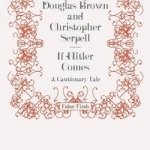
If Hitler Comes: A Cautionary Tale
Christopher Serpell and Douglas Brown
Book
This novel was first published by Faber in August 1940 under the title, "The Loss of Eden". It was...
Hazel (1853 KP) rated Blood for Blood (Wolf By Wolf #2) in Books
Dec 17, 2018
<i>This eBook was provided by the publisher via NetGalley in exchange for an honest review </i>
Ryan Graudin blew readers away with her alternate historical novel <i>Wolf by Wolf</i>. Now it is time to conclude the imaginative narrative with the highly anticipated sequel, <i>Blood for Blood. </i>Continuing from the precise moment Yael pulled the trigger on the Führer’s doppelgänger, the reader is thrown into a lively story of twists and turns, where danger lives around every corner.
To recap, it is 1956 and Hitler has won the war. Germany, or Germania, is ruling over Europe and many countries in Asia and Africa. Yael is a Jewish girl who a doctor experimented on whilst she was detained in a concentration camp. As a result of the brutal medical treatment, Yael is a successful result of the Doppelgänger Project – she can now change her physical appearance and anatomy at will.<i> Wolf by Wolf</i> focused on Yael and the resistance’s attempt to win a prestigious motorcycle race in order to get close to the Führer and end his life. As it turns out, Yael is not the only person with this skin shifting ability.
On the run with the entire world knowing her secret, Yael is desperate to make contact with the resistance leaders and continue with their plot to assassinate Hitler. However, unable to leave innocent people to suffer at the hands of the National Socialists, Yael ends up being accompanied and hindered by two Aryan boys, Luka and Felix. Yet with no way of knowing who can be trusted, Yael is taking a fatal risk by helping others instead of saving herself.
Despite circumstances, the blossoming romance that began to advance toward the end of the first book continues to feature in <i>Blood for Blood</i> as characters begin to rely on and trust each other. Nonetheless, constant plot developments obstruct all thoughts of a happy ending. Clever twists and gradually emerging truths prevent any opportunity for rest or safety.
<i>Wolf by Wolf </i>was an exciting, new concept for young adult readers, answering a “what if” question about the second world war. Yet the historical setting – albeit fictional – was impeded by the focus on the Axis Tour as characters raced from Germania to Tokyo. In contrast, <i>Blood for Blood</i> leaves all distractions behind, giving full attention to the life and danger under Hitler’s dictatorship. Despite Germany/Germania’s triumphant win, war is still raging throughout Europe. Anyone not meeting the Aryan description is at risk of death or deportment. Strictly speaking, the situation described must look similar, if not the same, as the true result of Nazi ruling.
Ryan Graudin is a formidable writer with the ability to make fiction seem like reality. Despite the added science fiction twist, the imaginative scenario is so well researched and planned that it becomes almost believable. Graudin comes at the story from so many directions, evidencing the effort put into creating the thrilling plot. It is one thing to be able to string words together, but to make them come alive it takes a genius.
<i>Blood for Blood</i> is by far the better of the two novels, making it the perfect conclusion to a fantastic two-part story. Beginning with explosive action and not stopping until its heart-wrenching conclusion, <i>Blood for Blood</i> will satisfy readers of all ages and genres. Those who have read <i>Wolf by Wolf</i> definitely must get their hands on this amazing sequel. You will not be disappointed.
Ryan Graudin blew readers away with her alternate historical novel <i>Wolf by Wolf</i>. Now it is time to conclude the imaginative narrative with the highly anticipated sequel, <i>Blood for Blood. </i>Continuing from the precise moment Yael pulled the trigger on the Führer’s doppelgänger, the reader is thrown into a lively story of twists and turns, where danger lives around every corner.
To recap, it is 1956 and Hitler has won the war. Germany, or Germania, is ruling over Europe and many countries in Asia and Africa. Yael is a Jewish girl who a doctor experimented on whilst she was detained in a concentration camp. As a result of the brutal medical treatment, Yael is a successful result of the Doppelgänger Project – she can now change her physical appearance and anatomy at will.<i> Wolf by Wolf</i> focused on Yael and the resistance’s attempt to win a prestigious motorcycle race in order to get close to the Führer and end his life. As it turns out, Yael is not the only person with this skin shifting ability.
On the run with the entire world knowing her secret, Yael is desperate to make contact with the resistance leaders and continue with their plot to assassinate Hitler. However, unable to leave innocent people to suffer at the hands of the National Socialists, Yael ends up being accompanied and hindered by two Aryan boys, Luka and Felix. Yet with no way of knowing who can be trusted, Yael is taking a fatal risk by helping others instead of saving herself.
Despite circumstances, the blossoming romance that began to advance toward the end of the first book continues to feature in <i>Blood for Blood</i> as characters begin to rely on and trust each other. Nonetheless, constant plot developments obstruct all thoughts of a happy ending. Clever twists and gradually emerging truths prevent any opportunity for rest or safety.
<i>Wolf by Wolf </i>was an exciting, new concept for young adult readers, answering a “what if” question about the second world war. Yet the historical setting – albeit fictional – was impeded by the focus on the Axis Tour as characters raced from Germania to Tokyo. In contrast, <i>Blood for Blood</i> leaves all distractions behind, giving full attention to the life and danger under Hitler’s dictatorship. Despite Germany/Germania’s triumphant win, war is still raging throughout Europe. Anyone not meeting the Aryan description is at risk of death or deportment. Strictly speaking, the situation described must look similar, if not the same, as the true result of Nazi ruling.
Ryan Graudin is a formidable writer with the ability to make fiction seem like reality. Despite the added science fiction twist, the imaginative scenario is so well researched and planned that it becomes almost believable. Graudin comes at the story from so many directions, evidencing the effort put into creating the thrilling plot. It is one thing to be able to string words together, but to make them come alive it takes a genius.
<i>Blood for Blood</i> is by far the better of the two novels, making it the perfect conclusion to a fantastic two-part story. Beginning with explosive action and not stopping until its heart-wrenching conclusion, <i>Blood for Blood</i> will satisfy readers of all ages and genres. Those who have read <i>Wolf by Wolf</i> definitely must get their hands on this amazing sequel. You will not be disappointed.
Suswatibasu (1703 KP) rated The Brief Wondrous Life of Oscar Wao in Books
Oct 29, 2017 (Updated Oct 29, 2017)
Amusing, yet disappointing thanks to all the hype
For six months I've been saving this book mostly because of how much praise this book has received. Not only did this receive the National Book Critics Circle Award for fiction but also a Pulitzer Prize. And was it worth the awards? I personally don't think so.
Labelled 'a masterpiece' by critics, the book follows the life of Oscar de Leon, or as some know him as Oscar Wao, from the perspective of the people that know him. From the title you can expect something interesting happened to him to reduce his lifespan and this definitely is the case.
Through his friend Yunior and sister Lola's accounts, they delve into the history of the Dominican Republic where they were originally from before settling in New York. Fuku or a curse, plays a big role in this book, as the de Leon family believed they had faced many misfortunes over the generations and ghetto nerd Oscar was no exception. In between the chaos of murder and corruption, were several love stories that went awry.
And while some of it was interesting, and you need a good grasp of Spanish, the footnotes became irritating filling several half pages to explain the historical context. To be honest, apart from the grandmother La Inca, and sister Lola, most of the characters were unlikable - the idiotic things they'll do for love are astounding. The language was rich, but the structure seemed slightly convoluted, as if the writer had attempted to keep a scheme in place but it still leaked everywhere. While some of it is engaging, I'm really not sure how this won the Pulitzer.
Labelled 'a masterpiece' by critics, the book follows the life of Oscar de Leon, or as some know him as Oscar Wao, from the perspective of the people that know him. From the title you can expect something interesting happened to him to reduce his lifespan and this definitely is the case.
Through his friend Yunior and sister Lola's accounts, they delve into the history of the Dominican Republic where they were originally from before settling in New York. Fuku or a curse, plays a big role in this book, as the de Leon family believed they had faced many misfortunes over the generations and ghetto nerd Oscar was no exception. In between the chaos of murder and corruption, were several love stories that went awry.
And while some of it was interesting, and you need a good grasp of Spanish, the footnotes became irritating filling several half pages to explain the historical context. To be honest, apart from the grandmother La Inca, and sister Lola, most of the characters were unlikable - the idiotic things they'll do for love are astounding. The language was rich, but the structure seemed slightly convoluted, as if the writer had attempted to keep a scheme in place but it still leaked everywhere. While some of it is engaging, I'm really not sure how this won the Pulitzer.
MaryAnn (14 KP) rated Where We Belong in Books
Mar 5, 2019
In the year 1892, the principles; that is the manners and customs for Victorian women were strict and their roles were limited. It was frowned upon for ladies to further their education but for the Hawes sisters, things were different. Their love for adventure and their search for God's purpose in their lives leads them on an adventure of a lifetime to the Sinai Desert.
On a quest to find an important biblical manuscript, joined by their butler and ladies maid Kate, the four find themselves on a journey that is dangerous and uncertain; the four travelers find themselves looking back at their past and the events that help shape them into who they are and what brought them to this point in their lives.
Author Lynn Austin has done a wonderful job of research. She has written this novel from the inspiration taken from the true story of twin sisters Agnes and Margret Smith; who were born in Scotland in 1843.
This novel was a joy to read and hard to put down. The characters were very easy to relate to and the storyline was fascinating.
I truly enjoyed every aspect of this story, the determination of the ladies, to the principles they stood up for and their love for God.
This is an exceptional read and anyone who loves historical fiction will truly enjoy this.
I received this book free from the publisher. I was not required to write a positive review and the opinions I have expressed are my own. I am disclosing this in accordance with the Federal Trade Commission’s 16 CFR, Part 255 : “Guides Concerning the Use of Endorsements and Testimonials in Advertising.”
On a quest to find an important biblical manuscript, joined by their butler and ladies maid Kate, the four find themselves on a journey that is dangerous and uncertain; the four travelers find themselves looking back at their past and the events that help shape them into who they are and what brought them to this point in their lives.
Author Lynn Austin has done a wonderful job of research. She has written this novel from the inspiration taken from the true story of twin sisters Agnes and Margret Smith; who were born in Scotland in 1843.
This novel was a joy to read and hard to put down. The characters were very easy to relate to and the storyline was fascinating.
I truly enjoyed every aspect of this story, the determination of the ladies, to the principles they stood up for and their love for God.
This is an exceptional read and anyone who loves historical fiction will truly enjoy this.
I received this book free from the publisher. I was not required to write a positive review and the opinions I have expressed are my own. I am disclosing this in accordance with the Federal Trade Commission’s 16 CFR, Part 255 : “Guides Concerning the Use of Endorsements and Testimonials in Advertising.”
Zuky the BookBum (15 KP) rated The Wonder in Books
Mar 15, 2018
Also read my review here: http://bookbum.weebly.com/book-reviews/the-wonder-by-emma-donoghue
<b><i>It came to Lib then that the question to ask was not how a child might commit such a fraud, but why?</b></i>
<i>The Wonder</i> is an absolutely beautiful and thought-provoking novel and by far one of the best books I’ve read this year.
Set in towards the end of the 19th century, we meet one of Ms Nightingale’s own nurses, shipped out to Ireland to investigate a so-called miracle. Young Anna O’Donnell hasn’t eaten since her 11th birthday, which passed four months ago. Lib begins a frustrating journey into learning whether Anna is truly a modern day Saint.
She is determined to prove the miracle a hoax, but being faced with old Irish superstitions she doesn’t understand, sexism and strong Catholic faith, she has a hard time getting to the truth.
It’s a bit of a slow ride, but it’s interesting enough to keep you wanting to know more. Donoghue creates a beautifully vivid story for you to really lose yourself in, you’ll find yourself reading this book within a couple of days (or hours, depending on when you’re reading it). Not what I’d classify at a mystery novel - the story is so much more than just working out the story behind Anna’s apparent loss of appetite. It’s a story of faith, believing in yourself and following your heart.
A really enjoyable book, with a wide array of likable and dislikable characters, beautiful scenery and heart warming lessons to take away, this is a must read for any historical fiction lover.
<b><i>It came to Lib then that the question to ask was not how a child might commit such a fraud, but why?</b></i>
<i>The Wonder</i> is an absolutely beautiful and thought-provoking novel and by far one of the best books I’ve read this year.
Set in towards the end of the 19th century, we meet one of Ms Nightingale’s own nurses, shipped out to Ireland to investigate a so-called miracle. Young Anna O’Donnell hasn’t eaten since her 11th birthday, which passed four months ago. Lib begins a frustrating journey into learning whether Anna is truly a modern day Saint.
She is determined to prove the miracle a hoax, but being faced with old Irish superstitions she doesn’t understand, sexism and strong Catholic faith, she has a hard time getting to the truth.
It’s a bit of a slow ride, but it’s interesting enough to keep you wanting to know more. Donoghue creates a beautifully vivid story for you to really lose yourself in, you’ll find yourself reading this book within a couple of days (or hours, depending on when you’re reading it). Not what I’d classify at a mystery novel - the story is so much more than just working out the story behind Anna’s apparent loss of appetite. It’s a story of faith, believing in yourself and following your heart.
A really enjoyable book, with a wide array of likable and dislikable characters, beautiful scenery and heart warming lessons to take away, this is a must read for any historical fiction lover.
Whatchareadin (174 KP) rated The Inn at Hidden Run (Tree of Life #1) in Books
Jun 21, 2019
Hidden Run is a B&B in the small town of Canyon Mines, just outside of Denver, Colorado. When a stranger comes to town looking lost, Jillian and her father Nolan are determined to help her find her way. Meri comes from a family of doctors, but that is not what she wants to do. Maybe coming to Colorado, a place she last felt like herself will help her to find the future that is best for her.
Thank you to NetGalley & Barbour Publishing for the opportunity to read and review this book.
The title of this book really isn't fitting for what it contains. It's much more than the Inn. That is where Meri is situated while in Colorado, but it's really about the people in the town that help her when she is lost. Meri loves her family, but doesn't feel the calling to be a doctor like everyone else for generations has been. When she comes to Canyon Mines, Jillian, who is a genealogist, helps her to find her family roots and maybe explain while she feels the way she does.
I gave this book three stars, because it didn't grasp my attention right away. At times it felt as if the story line kept repeating the same things, like the author copy and pasted a line from one chapter to all the other chapters in the book. Overall the book is enjoyable, trading from modern day Colorado, to 1800's Memphis during the yellow fever outbreak. This is a good book for those the enjoy historical fiction. I did learn a lot about that epidemic which includes some very factual details in this story.
Thank you to NetGalley & Barbour Publishing for the opportunity to read and review this book.
The title of this book really isn't fitting for what it contains. It's much more than the Inn. That is where Meri is situated while in Colorado, but it's really about the people in the town that help her when she is lost. Meri loves her family, but doesn't feel the calling to be a doctor like everyone else for generations has been. When she comes to Canyon Mines, Jillian, who is a genealogist, helps her to find her family roots and maybe explain while she feels the way she does.
I gave this book three stars, because it didn't grasp my attention right away. At times it felt as if the story line kept repeating the same things, like the author copy and pasted a line from one chapter to all the other chapters in the book. Overall the book is enjoyable, trading from modern day Colorado, to 1800's Memphis during the yellow fever outbreak. This is a good book for those the enjoy historical fiction. I did learn a lot about that epidemic which includes some very factual details in this story.
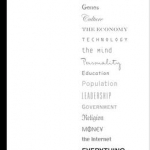
The Evolution of Everything: How Ideas Emerge
Book
We are taught that the world is a top-down place. Acclaimed author Matt Ridley shows just how wrong...
